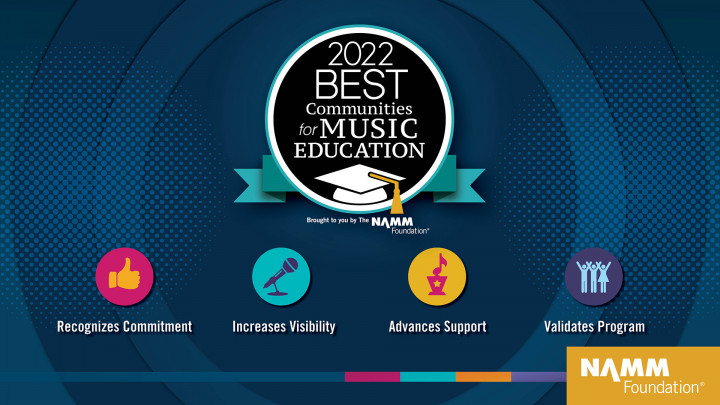NAMM Foundation Website © 2025, NAMM Foundation and its parent (or licensors). All rights reserved. This site and its content or materials may not be reproduced, displayed, modified, or distributed without the express prior written permission of The NAMM Foundation. Show more...
NAMM Foundation Website © 2025, NAMM Foundation and its parent (or licensors).
The NAMM Foundation provides you only with a revocable, limited, non-exclusive, nontransferable license to access and view on a remotely accessible basis a single copy of The NAMM Foundation Site (and its available materials or content) solely for your personal purposes. The NAMM Foundation reserves all rights not expressly granted. Moreover, The NAMM Foundation Site (and its available materials or content) cannot be further copied, modified, or excerpted; used, displayed, transmitted, or distributed with or to third parties; or offered for resale or use, without the prior written consent of The NAMM Foundation.
THE NAMM FOUNDATION WEBSITE AND ITS CONTENT AND MATERIALS ARE PROVIDED ON AN "AS-IS" BASIS, WITHOUT WARRANTY OF ANY KIND, EXPRESS OR IMPLIED. YOU ASSUME THE SOLE RISK OF MAKING USE OF THE NAMM FOUNDATION WEBSITE. MOREOVER, IN NO EVENT SHALL THE NAMM FOUNDATION (or its parent or licensors) BE LIABLE FOR ANY INDIRECT, PUNITIVE, INCIDENTAL, SPECIAL, OR CONSEQUENTIAL DAMAGES ARISING OUT OF OR IN ANY WAY CONNECTED WITH YOUR USE OF THE NAMM FOUNDATION WEBSITE.
THE NAMM FOUNDATION, NAMM FOUNDATION plus logo design, NAMM, NATIONAL ASSOCIATION OF MUSIC MERCHANTS, and all other names, logos, and icons identifying The NAMM Foundation and its programs, products, and services are proprietary trademarks of The NAMM Foundation (or its parent or licensors), and any use of such marks without the express written permission of The NAMM Foundation is strictly prohibited. Show less...






